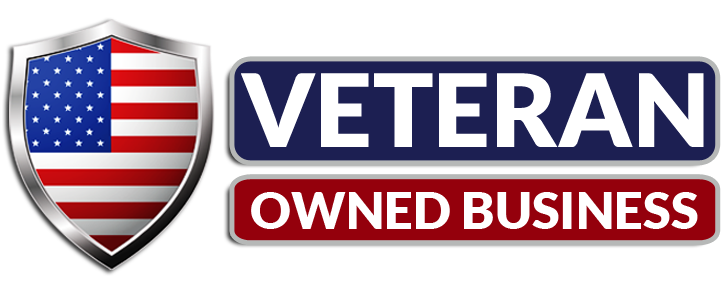Truck accident cases don’t just hinge on what happened—but which laws were broken. Here’s how federal and state rules shape liability and compensation in Colorado truck accident cases.
When the Law Shapes the Outcome of a Truck Crash
After a devastating truck accident, it’s natural to focus on the physical damage—the twisted steel, the shattered bones, the medical bills piling up. But behind the scenes of every truck crash is a second battlefield: the legal landscape.
And in Colorado, two sets of laws govern commercial trucks:
- Federal regulations from the FMCSA
- Colorado-specific rules enforced by CDOT and CSP
Understanding these regulations—and proving when they were violated—can turn a difficult case into a strong one.
At Fisher and Associates, we don’t just react to the crash.
We investigate every mile, every document, and every rule and regulation that could support your claim.
FMCSA Rules: The Federal Foundation for Safe Trucking
The Federal Motor Carrier Safety Administration (FMCSA) oversees commercial trucking nationwide. If a truck is driving across state lines—or operates as an interstate carrier—it must follow FMCSA regulations.
Key FMCSA rules include:
- Hours of Service (HOS): Limits how long truckers can drive without rest. Violations lead to fatigue-related crashes.
- Driver Qualifications: Commercial drivers must meet medical and licensing requirements.
- Vehicle Maintenance: Trucks must be regularly inspected, maintained, and repaired.
- Drug & Alcohol Testing: Drivers must pass random testing and comply with post-crash testing protocols.
- Electronic Logging Devices (ELDs): These devices track hours and monitor compliance.
If a trucker or company violates these rules, it’s not just a technical slip—it’s strong evidence of negligence.
FMCSA Regulations Overview
What Makes Colorado’s Trucking Laws Unique?
While FMCSA sets the baseline, Colorado has its own rules for in-state commercial vehicle operations—especially given the state’s mountainous terrain, winter weather, and tourism traffic.
Here’s what makes Colorado’s trucking laws distinctive:
- Chain Law Enforcement:
Between September and May, trucks must carry and use tire chains on mountain routes like I-70 during snow events. Failing to chain up during a storm can cause catastrophic, preventable crashes. - Weight & Height Restrictions:
Certain roads and bridges in Colorado can’t accommodate oversized loads without special permits. Overloading or using restricted routes without permission is a direct violation of state law. - Hazmat Routing Rules:
Hazardous material carriers must follow strict routing protocols to avoid putting the public at unnecessary risk. - Colorado State Patrol Oversight:
The CSP Motor Carrier Safety Section enforces weight stations, roadside inspections, and intrastate compliance. - In-State Authority & Registration:
Carriers operating only within Colorado must be registered with the Public Utilities Commission (PUC) and meet insurance requirements.
Colorado Motor Carrier Rules (CDOT)
How Violating These Laws Impacts Your Injury Case
At Fisher and Associates, when we build a truck accident case, we don’t just ask what happened—we ask which rules were broken.
This line of inquiry is critical because:
- A legal violation can prove fault.
If a driver skipped required rest breaks and caused a crash, it’s more than carelessness—it’s a legal breach. - Juries respect safety rules.
When we show a driver ignored safety protocols—like chaining tires in a blizzard—juries are more likely to award full damages. - Regulatory failures expose companies.
If the trucking company failed to train, inspect, or maintain the vehicle, they may be directly liable under state and federal law.
These violations can dramatically increase your leverage in a settlement—or your odds in court.
Who Enforces These Laws—and Why It Matters
Enforcement comes from multiple agencies, but accessing these records is where your legal team comes in.
FMCSA (Federal):
- Performs audits and inspections
- Issues Safety Fitness Determinations (SFDs)
- Maintains the Safety Measurement System (SMS) scores for trucking companies
Colorado State Patrol (CSP) & CDOT:
- Enforce state weight, permit, and road-use rules
- Monitor chain compliance and hazardous routing
- Conduct roadside inspections at weigh stations
At Fisher and Associates, we access:
- Driver logs
- Black box data
- Inspection and maintenance records
- Dispatch communications and GPS tracking
- Audit history and compliance violations
This data is gold—and it often disappears unless an attorney acts fast to obtain it and preserve it.
Why Fisher and Associates Stands Out in Trucking Cases
Truck crashes aren’t “big car accidents.” They’re highly regulated, evidence-heavy events that require a legal team with the knowledge and resources to act fast and dig deep.
At Fisher and Associates, we bring:
- Veteran-led leadership with diligence, precision and calm under pressure
- Fast action to preserve key regulatory evidence
- Proven strategy from experience in high-value trucking litigation
- A direct-attorney model—you speak with a lawyer, not a clerk or case manager
We don’t just investigate what went wrong. We uncover who violated the law—and hold them accountable.
Suspect the Truck Driver Broke the Rules? Call Us Now.
If you’ve been injured in a truck crash in Colorado, time is everything. The truck company already has a legal team building their defense. You need one building yours.
Don’t wait for them to erase the evidence. Call Fisher and Associates today!

Erica Long represents plaintiffs in all forms of accident cases including car and motorcycle accidents, wrongful death, and slip and fall injuries. She is licensed to practice law in both the State of Colorado and the State of California. Ms. Long earned her bachelor’s degree from the University of California, Berkeley and her Juris Doctor degree from the University of California, Berkeley School of Law.

